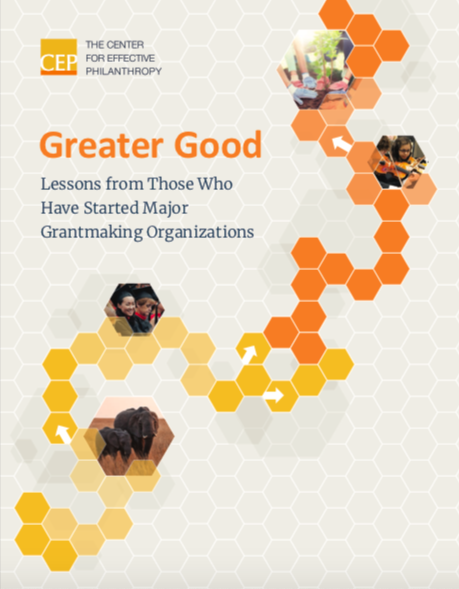- Home
- About Us
- The Team / Contact Us
- Books and Resources
- Privacy Policy
- Nonprofit Employer of Choice Award

 While there is no single blueprint to follow, there are many shared experiences and lessons to be learned from those who have led early-stage grantmaking organizations. Interviewees say that getting a grantmaking organization off the ground takes three key elements:
While there is no single blueprint to follow, there are many shared experiences and lessons to be learned from those who have led early-stage grantmaking organizations. Interviewees say that getting a grantmaking organization off the ground takes three key elements:
Leadership characterized by humility, courage, and resourcefulness
Starting an organization is not just about building systems and processes. It is about the values undergirding the work, the approach that leaders take in the early years, and the mindset that leaders bring to the work. What comes through loud and clear in our interviews is that leadership, from the very top, makes all the difference and that the traits of humility, courage, and resourcefulness are particularly important in the early years. Interviewees recommend being humble and bold, learning the basics from others, and hiring staff with aligned expectations.
Shared understanding among donors, board, staff, and grantees about how the organization will approach its work
Leaders of early-stage grantmaking organizations have a range of relationship-building responsibilities, from understanding donor intent, to working with a board of directors, to managing staff, to interacting with grantees. There are difficult, candid conversations to be had across these stakeholder groups to ensure a shared understanding about how the organization will approach its work. Interviewees recommend getting clarity on donor intent and wishes, establishing role clarity and trust with the board, helping staff embody the organization’s culture and values, starting off relationships with grantees on the right foot, and prioritizing the development of a communications function.
An organization with a sense of what success is and an orientation toward learning
Making change for the greater good is never quick or easy, even when large sums of money are involved. Interviewees recommend outlining what success would look like and how to measure it and embracing learning and change as a natural part of the process.
To read the full report, find it here.
The mission of the Center for Effective Philanthropy (CEP) is to provide data and create insight so philanthropic funders can better define, assess, and improve their effectiveness—and, as a result, their intended impact.